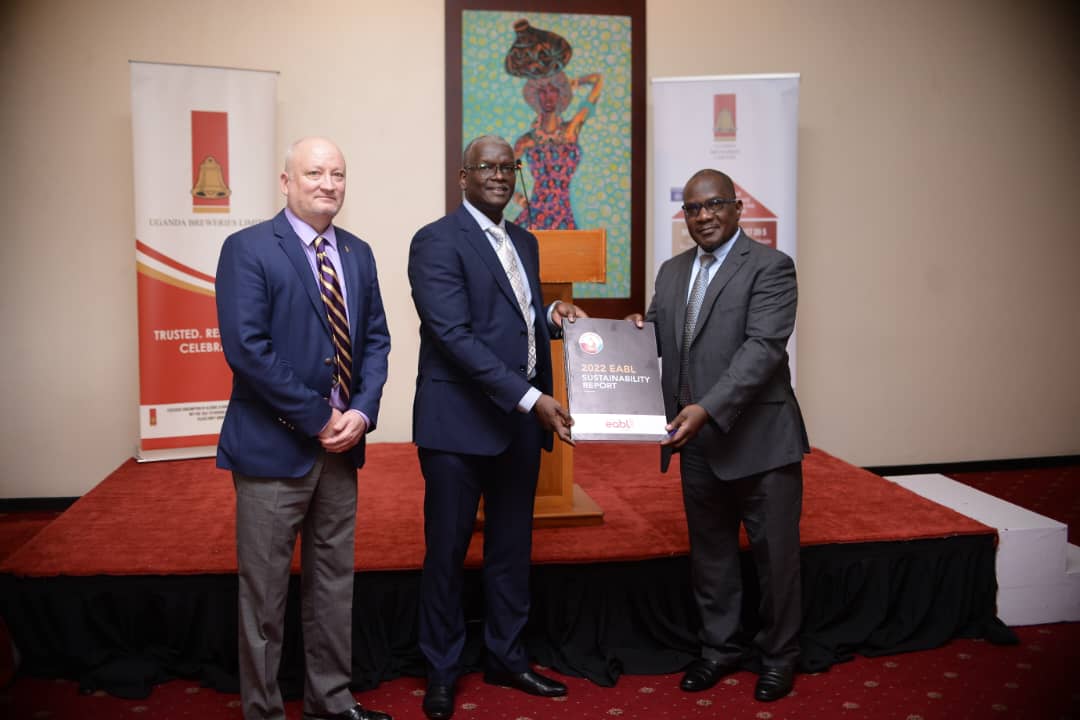
KAMPALA – I do not know whether it was deliberate or by default but the framers of the Constitution of the Republic of Uganda 1995 denied and indeed deprived many Ugandans of the opportunity to maintain their true heritage and lineage.
They created an omnibus law that was intended to cover many other Ugandans who may have come to Uganda after 1926 but before 1995. In so doing, they erased citizenship by descent in total disregard to provisions of the past constitution.
I have also come to the conclusion that many Ugandans do not distinguish between nationality and citizenship in whatever form, not even our Members of Parliament whose core mandate is to make laws.
What was captured in our laws is nothing less than nationality and I believe in enacting those bogus laws; we lost the point and therefore our true identity. Our inability to read and understand what is written is our biggest setback.
Many of us cannot draw a distinction between nationality and citizenship; they are certainly not one and the same thing. Ugandan nationality law is regulated by the constitution of the Republic of Uganda as amended; the Uganda Citizenship and Immigration Control Act; and various international agreements to which the country is a signatory. These laws determine who is, or is eligible to be, a national of Uganda and the procedure for acquiring such citizenship. The legal means to acquire nationality, formal legal membership in a nation, differ from the domestic relationship of rights and obligations between a national and the nation, known as citizenship.
An individual is a national of a particular country mainly through descent and birth. Nationality is got through inheritance through parents or it be called a natural phenomenon. On the other hand an individual becomes a citizen of a country only when he is accepted into that country’s political framework through legal terms. Elaborating the two words, an individual born in Uganda will be having Ugandan Nationality. But he may have Kenyan citizenship once he/she has registered with that country and can only retain both citizenships if the laws of both countries allow dual citizenship.
It is also true that citizenship is granted to an individual by the government of the country, when he/she complies with the legal formalities. It is the status of being a citizen of a country and the distinction lies in the type of citizenship accorded to that individual, it cannot be determined by the state. Citizenship by descent is a means whereby an individual is eligible to claim citizenship if his/her parents, grandparents, or sometimes even great-grandparents hail from a given country.
Nationality describes the relationship of an individual to the state under international law, whereas citizenship is the domestic relationship of an individual within the nation. Common wealth countries often use the terms nationality and citizenship as synonyms, despite their legal distinction and the fact that they are regulated by different governmental administrative bodies. Ugandan nationality is typically obtained under the principal of jus sanguinis, i.e. by birth to parents with Ugandan nationality. It can be granted to persons with an affiliation to the country, or to a permanent resident who has lived in the country for a given period of time through naturalization or registration.
When the government rolled out the mass registration program, I personally picked the form to fill in my particulars and to have my biometrics taken. I then called my parents to get the details of their parents, my parents also called their parents (my grandparents) for information. It is at this point that I learnt that our ancestors first settled around the slopes of Mt elgon more than two centuries ago. Our family heritage is very clear and can be traced back to 1835 when our ancestors settled in Bugisu from some unknown destination.
I was however surprised to learn that the NIRA form dictated the forms of citizenship from which I would pick, these were citizen by birth, naturalization, registration and dual citizenship. Being who I am, I demanded for answer since my previous passports and deriving permits had citizen by descent. The registering officers told me that I had the option of not filling the form or choose from what was available. I looked at the form again, closed my eyes and ticked citizen by birth, I sealed my fate and in effect distanced myself from my ancestors who labored to settle in Uganda way before 1926 when the territory of Uganda was demarcated.
Looking back at our history, I hold the view that Uganda would not have been called Uganda if it was a vast piece of land without a people, it would not have been colonized without human beings who call then their descendants. The missionaries would not have settled here if they had nobody to confuse. That is why I retaliate that Uganda was already occupied by 1926 by people who did not migrate. Thus many of us including myself are the descendants of those men and women hence a citizen of Uganda by descent.
Why, when and how did some of us loose the right to citizenship by descent?
According to Article 9 of the Constitution of the Republic of Uganda 1995, all persons who, at the commencement of the 1995 Constitution, were citizens of Uganda, qualify as citizens and should be treated as such. The Constitution provided for and still maintains four main categories of citizenship: birth, registration, and naturalisation under Articles 10, 11, 12 and 13 while Article 15 of the same constitution as amended in 2005 created the duo citizenship. Citizenship by descent is not mentioned anywhere and is as such alien to our laws.
What we don’t know is whether the law makers deliberately eliminated citizenship by descent or it was done in default or duress. In their wisdom, they substituted citizenship by descent with citizenship by birth in order to cater for a few who could not trace their origins. The law as it is left the National Identification Registration Authority office with no option but to maintain the four forms of citizenship. In other words, all the biometric information gathered on all Ugandans with national identity cards shows the majority of Ugandans are citizens by birth meaning nobody can trace their origins beyond 1926 when Uganda was demarcated.
Citizenship by birth is defined under Article 11 of Uganda’s Constitution, and section 12 of the Uganda Citizenship and Immigration Control Act. Three categories of persons qualify to be citizens of Uganda by birth. The first are persons born in Uganda but one of their parents or grandparents is or was a member of any of the indigenous communities existing and residing within the borders of Uganda as at the first day of February 1926, and set out in the Third Schedule and there are 56 in number (Article 10(a).
A deeper look at the first category shows that the law makers attempted to hoodwink us into believing citizenship by birth was the same as citizenship by descent. It was unfair to those who were born to Ugandan parents with the ability to prove that their grandparents and grandparents were members of the indigenous communities existing and residing within the borders of Uganda as of the first day of February, 1926. These are the people I believe who should have been allowed to be Ugandans by descent.
The second category comprises those persons born in or outside Uganda but one of their parents or grandparents was, at the time of birth of that person, a citizen of Uganda by birth. The third category is orphans and adopted children under Article 11. These include a child of not more than five years of age found in Uganda, whose parents are not known. Such a child is presumed to be a citizen of Uganda by birth. These also include children under the age of 18 years neither of whose parent(s) is a citizen of Uganda, who is adopted by a citizen of Uganda, are allowed to be a citizen following a registration application.
The last category caters for Ugandans who may have fled or left Uganda for some reasons and obtained another citizenship. These are allowed to claim back their citizenship and also maintain that other citizenship of another country. The majority of Ugandans do not and I repeat, do not fall in any of these categories mentioned and are therefore citizens by descent. I have carried out extensive research and learnt that it is only Uganda among the common wealth countries which doesn’t consider citizenship by descent.
Now that our national identity cards are due to expire in one or two years time, this is the time to correct our historical mistakes and set the record straight. For those who have been living within the borders of Uganda will tell you that a national identity card is now a pre-requisite for one to acquire a driver’s license, passport, simcard as well as dealing with banks and Government offices. An Identity card is now so important that you cannot do anything without it; some even use it to cross boarders within the east African community.
In other words, a national identity card summarizes you in one document and must contain only correct information lest it is considered a misleading document. We are told the individual National Identification Numbers will not change but the card is expected to have new features with a likelihood of capturing DNA if resources allow. It is my view that all laws providing for forms of citizenship be amended to reflect the correct position of each person’s heritage. Otherwise we will continue to look like we are visitors in our own country.
Wadada Rogers is a commentator on political, legal and social issues. Wadroger @yahoo.ca





